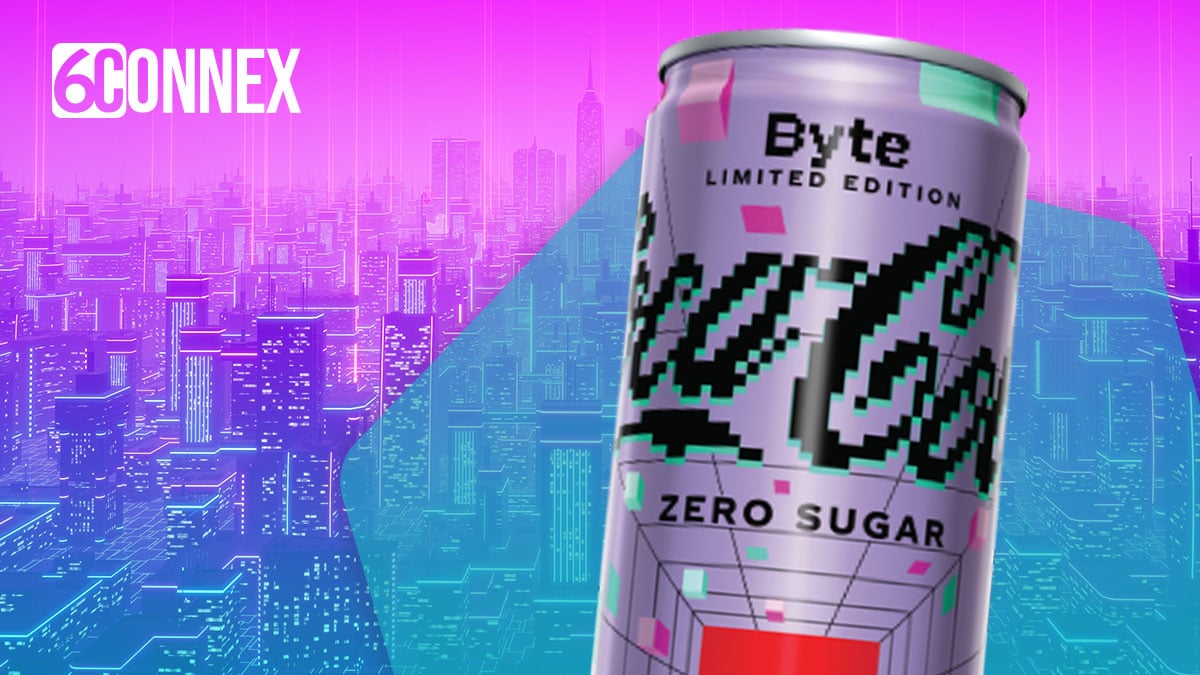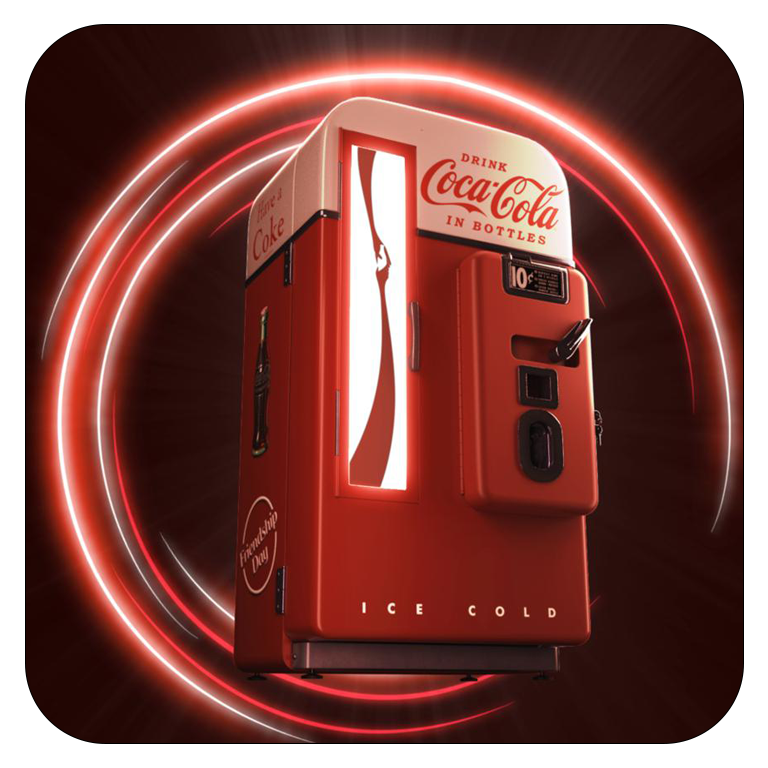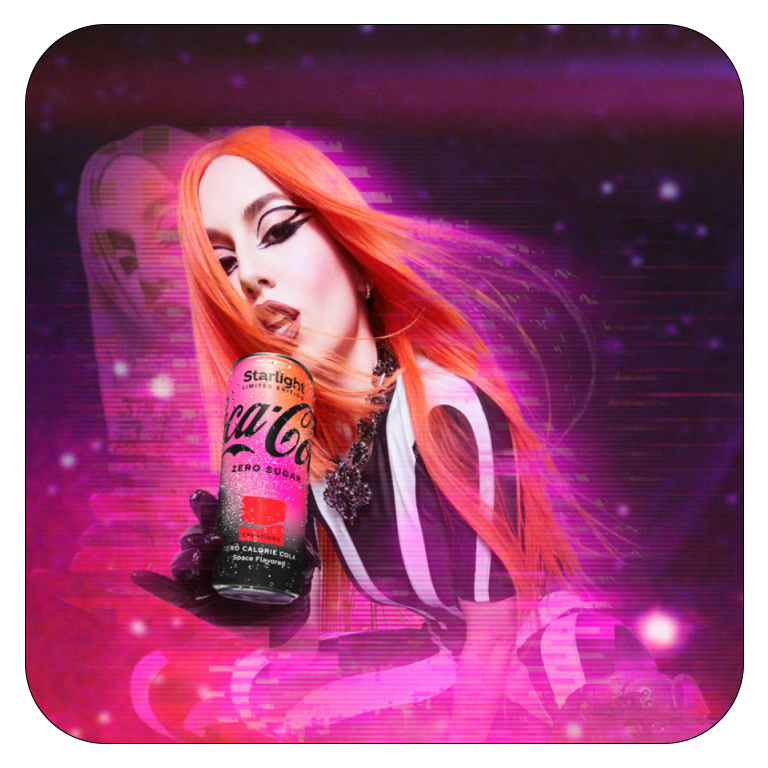Companies in the Metaverse: Coca-Cola Goes Virtual
Kortney Phillips
Feb 27, 2023 10:00:00 AM

When it comes to the “next big thing,” many enterprise companies are investing in the metaverse. While the largest contributor is undoubtedly Meta (aka Facebook), other brands are testing the waters to see if this new reality holds any substantial signs of promise. One such brand is Coca-Cola, which has fully embraced the concept and gone all-in with a slew of digital collectibles, product launches, virtual appearances, and more in the metaverse.
With big brands’ attention focused on the metaverse, we wanted to take a closer look ourselves and see what this digital space could mean for marketing and customer engagement. Is the metaverse really the “next big thing,” or will it go the way of Quibi, the Windows phone, and Google+? Let's dive in and find out.
If you're a 90's sci-fi novels fan, you're likely familiar with the book Snow Crash by Neal Stephenson. In the book, Stephenson describes a digital world parallel to our world called “the Metaverse.” Today, the concept has broken free of its science fiction shackles and loosely become science reality.
The modern metaverse is slightly different than the one in Snow Crash, however, and to best comprehend it, we need first to understand Web3, aka a decentralized internet.
To begin, the internet we know today is called Web2. To access it, the user must go through one of a handful of gatekeepers, including internet service providers (i.e., Comcast) and search engines (i.e., Google). In contrast, Web3 and the metaverse seek to dethrone these companies and create a new internet that is built by users and for users. It is designed to be a shared digital destination where people and companies can interact in virtual environments. It is controlled not by one entity but rather by a collection of internet-connected devices and programs.
Despite the intention behind its design, early adoption of the metaverse thus far has come primarily from big brands, with individual participation falling short of expectations. It’s also of note that Web3 concepts like NFTs and cryptocurrencies are currently under fire, further increasing users’ hesitancy to endorse the space.
Regardless of the headlines, well-recognized companies, including Coca-Cola and Meta, believe the users will eventually come and are investing heavily in the technology. The metaverse is a cutting-edge marketing channel for these organizations, primed to attract and engage a new generation of consumers.

Coke's journey into the metaverse began during a somewhat tumultuous time. The year was 2021, and the COVID-19 pandemic was still in full swing, although the fervor of 2020 had somewhat diminished. Despite the limitations imposed by COVID-19, it can be argued that the pandemic itself was a major boost for the metaverse, as millions of people suddenly switched from in-person events and gatherings to virtual events.
Coca-Cola officially joined the metaverse on International Friendship Day. A year later, the brand celebrated by offering more collectibles, perks, and proprietary experiences within the digital landscape. To date, the company has created more than 4,000 collectibles, with each unique Coca-Cola metaverse token demonstrating the synergy between technology and marketing.
But what exactly does Coca-Cola do inside the metaverse, and are the activities worthwhile for fans? Currently, Coca-Cola is in the "brand awareness" stage of its marketing blitz. Metaverse offerings like NFT collectibles, AR mini-games, and “virtual reality soda” come together in the metaverse to create awareness of Coke's presence in Web3. So far, Coca-Cola’s emphasis has been on collectible NFT drops. The original drop was a “loot box,” and its anniversary drop, consisting of one-of-a-kind artwork, was designed to be shared with friends.
Beyond this, it's unclear whether Coca-Cola hopes to achieve a quantifiable goal. Ideally, the company could sell digital products to customer avatars in the metaverse, but it may be a while before the general public feels comfortable spending real money on virtual items.
That said, Coke's gamble seems to be paying off. The brand realized a 12% sales increase in 2022 compared to 2021, and its forward-thinking moves reinforce the brand’s innovative identity, which can translate to better loyalty and trust from consumers.

Coca-Cola released a metaverse-inspired beverage, Sugar Byte, to celebrate its investment in the digital space. Sugar Byte was unveiled in April of 2022, and Coca-Cola launched a marketing blitz to promote the drink. Most ads were targeted at gamers, who are Coke's core demographic in the metaverse.
During the marketing campaign, Coca-Cola promoted Sugar Byte as having the "taste of pixels," begging the question, “What does a pixel taste like, and is it any good?” While Sugar Byte’s value propositions include a sugar-free ingredient list and augmented carbonation, many consumers report Sugar Byte doesn't seem much different than Coke Zero, possessing an identical flavor, but sweeter aroma.
Coca-Cola has promised more beverage drops in the coming months (similar to the brand's collectibles), but we have yet to see anything new since May of 2022.
One of the biggest challenges when using the metaverse for marketing is that the digital space is still in its infancy, so it's hard to say what companies in the metaverse "should" be doing. Metaverse companies, like Coca-Cola are learning as they go, and it could be years before there's a clear roadmap of what businesses can achieve within this landscape.
As a result, Coke's metaverse offerings may seem disjointed at the moment. However, as the company gathers data and refines its goals, we'll likely see a more cohesive strategy in the future. For now, here's what you can expect when you’re a Coca-Cola metaverse fan:
 |
Coca-Cola NFTs: Drops like the one that occurred on International Friendship Day give users access to unique collectible NFTs only available in the metaverse. Coca-Cola has now created over 4,000 collectibles , some which are limited-edition. |
|
Augmented-Reality Experiences: AR is quickly becoming more popular than VR because it doesn't require specialized equipment. Instead, smartphone users can download apps and interact with digital creations inside their current environment (think Pokemon Go). For Coke, AR experiences include a concert from Ava Max by simply scanning a QR code on a cake bottle, a series of Instagram filters, and games. |
 |
|
Avatar Assets: Part of the fun of visiting the metaverse is that you can create your own avatar. Coca-cola partnered with Tafi to develop and design their first NFTs in the metaverse. Coke fans can receive apparel, trading cards, and other accessories for their avatars to show their love of Coca-Cola and all the brand offers. |
Coke's new foray into the metaverse has a lot to do with video games. Since many younger consumers play games like Fortnite, it makes sense that established brands would want to use the metaverse to tap into this demographic.
Coca-Cola showcased its gaming prowess by creating an entire island called Pixel Point in Fortnite. Players can access the island in Fortnite Creative and interact with the virtual version of Sugar Byte and play four different sensory-based games – The Castle, The Escape, The Race, and The Tower. Each game encourages collaboration and teamwork - core themes in Coca-Cola's marketing strategy in the metaverse and an iteration of its real world messages to “share a Coke.”
Coke may invest in other augmented-reality games on different platforms and programs depending on the success of these mini-games. For example, when users scan the Sugar Byte can, they can play a small game called Byte that takes place on the outside of the can. It stands to reason that Coca-Cola could use similar AR technology to encourage additional interactions with its product packaging.

Although Coca-Cola is one of the largest brands to invest in the metaverse, they're far from the only one. Many companies are exploring this new technology and how it can help attract and engage potential customers.
Here are some examples of how AR and VR can work for marketing purposes:
While Coca-Cola is already tapping into the potential of the metaverse and AR marketing, other brands are still trying to decipher how to make it work – and understandably so. But regardless of whether you're interested in joining the metaverse or building your own virtual environment with 6Connex, the future of AR and VR marketing looks brighter than ever.

Virtual events have come a long way since the early days of boring Zoom calls and uninspiring webinars. With 6Connex, attendees can experience events in a virtual world that feels like the Metaverse.
Gone are the days of staring at a static screen and trying to imagine what the speaker or exhibit is like. With 6Connex, attendees can venture around in a fully immersive 3D environment, just like in a real-life event. They can explore the venue, interact with other attendees, and engage with vendors just as they would in the physical world, no headset needed.
Coke's success in the metaverse illustrates that modern consumers (especially younger generations) are willing to engage with brands in virtual environments. 6Connex has been in business for more than 12 years, and with so much experience building virtual environments, we are ahead of the curve. We can offer a customized metaverse-like experience for customers.
But 6Connex is more than just a virtual venue. It's a metaverse-like experience where attendees can create their own virtual space. It's like a virtual playground where attendees can express their creativity and personality. And the best part? No more missed flights, lost luggage, or hotel expenses. Attending events in 6Connex means you experience all the best of events from your favorite place in the world, wherever that may be.
Our offerings include:
So whether you're a seasoned virtual event veteran or a newcomer to the scene, 6Connex is the Metaverse of virtual events. Our use cases include job fairs, fundraisers, virtual offices, and more. Join the revolution and experience events like never before! Contact our world-class customer service team to see how 6Connex can build a custom virtual experience for your brand. If you possess a clear vision of your objectives or require inspiration, our assistance is available to help you optimize your virtual environment, no matter what.
Dive into the future of events with our insightful webinar, "Embracing AI in Events: Navigating Opportunities and Challenges,". Join our esteemed speakers: Dahlia El Gazzar - Founder of DAHLIA+ Agency, Stephen Kaufman - Chief Product Officer at Inriver, and Henry Tran - CTO at 6Connex
Explore the transformative potential of AI in event planning, and engagement, and the challenges it may bring. Stay informed and inspired as we navigate the thrilling opportunities and challenges that AI brings to the dynamic world of events.
6Connex is the leading provider of in-person, hybrid, and virtual event technology for enterprises worldwide. Our cloud-based product portfolio includes event management tools, in-person event apps, virtual venues, webinars, learning management, and more.
From internal meetings to large scale conferences, we allow you to engage and transform big ideas into real-world results.
425 Soledad St.
Suite #500
San Antonio, TX 78205
1.800.395.4702
Australia: +61.2.72294013
Brazil: +55.11.4375.3555
United Kingdom: +44.20.37447284
United States: +1.210.890.5769